Marketers love funnels, right? With marketing funnels or customer lifecycles, we go from first hello to happy customer by following a well-designed customer journey.
And when we’re thinking straight, we engage customers to repeat customer or upsell.
But with a communication channel as new as chatbot marketing on Facebook Messenger:
- What does a Facebook Messenger sales funnel look like?
- What is a chatbot marketing funnel?
- How exactly does it work?
- How do we execute a funnel to re-engage our future buyer using Messenger?
In this post, I’m going to explain exactly how to create a chatbot marketing funnel that drives conversions.
Intel here comes straight from Facebook Messenger’s partner manager of North America, Albert Rios. Rios delivered an amazing session at Customers.ai’s Messenger summit which you can watch here.
After reading this article, you’ll understand exactly how to design a funnel in Messenger that attracts and converts the ideal customer.
Want the TLDR version?
Here’s how to build a Facebook Messenger marketing funnel in 5 steps:
- Connect with potential customers.
- Have conversations to qualify prospects and educate on your solutions.
- Get the conversion after nurturing, re-engaging and sending users to conversion points.
- Follow up with customer care and notifications.
- Continue the customer journey with remarketing.
Jump to each section with the jump links above. We’ll break down each step and the tools in Customers.ai to use for each.
Join Today’s Webinar with Larry Kim!
Or Register for the Free Replay
Learn all about NEW 100% Meta-Approved Automation Tools from Customers.ai with a spotlight on features to 10X Instagram & Facebook Engagement and turn social media into a revenue driver for your business.
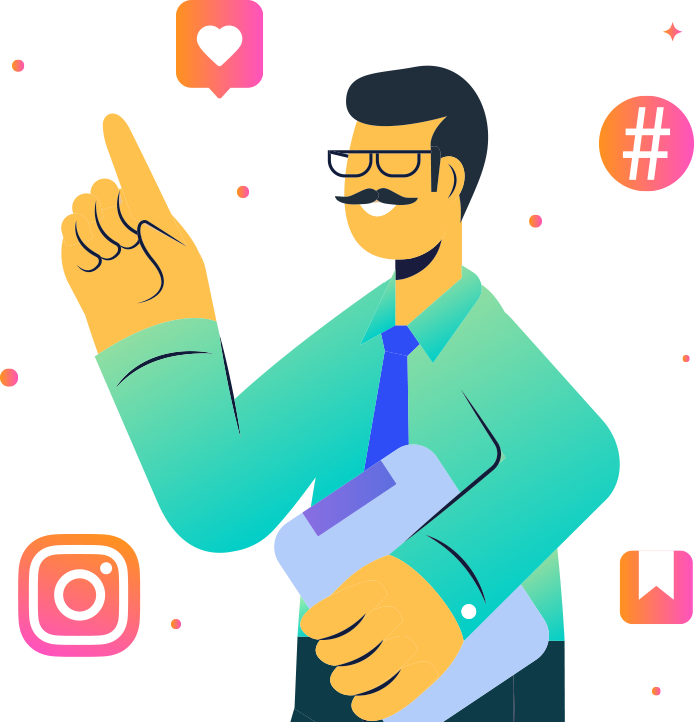
Get a Facebook Messenger Chatbot Builder
First, you’ll need a chatbot builder for Facebook Messenger.
Unless you’re using a free chatbot platform like Customers.ai, you won’t be able to create automated Facebook Messenger funnels to drive sales and conversions for your business.
Using Customers.ai makes the process easy, seamless, automated, and even fun. This is where the chatbot marketing funnel process begins.
In order to reap the maximum benefit from this article, please sign up for Customers.ai and then head back here.
Big View: The Facebook Messenger Marketing Funnel Visualized
First, let’s take a look at the big picture — what does the funnel look like?
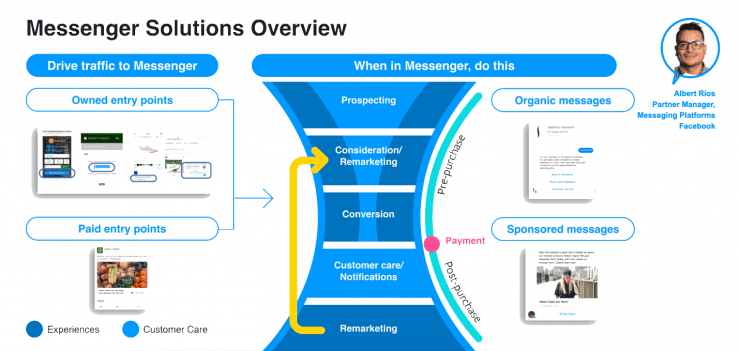
That is a screenshot from the presentation deck of Albert Rios, Facebook Messenger Partner Manager, speaking on Facebook Messenger marketing. As you see, the Messenger funnel has a fairly traditional anatomy.
The real dynamite isn’t in the shape of the funnel, but the conversational nature of each interaction. We’ll get into those details in just a minute, but first, let’s take a closer look at each section of the funnel.
- Prospecting – Establishing a conversational connection at the top of the funnel
- Consideration/remarketing – Tapping into that engaged audience with conversation
- Conversion – Yay! We have a sale!
- Customer care/notifications – Nurturing your customers post-sale
- Remarketing – Bringing things back to their attention for more and deeper engagement
The funnel might look blasé, but with Messenger, it’s electrifying. And — here’s the best part — it works with terrifying effectiveness.
With Messenger marketing, you’re starting a one-on-one conversation with each of these prospects. People love conversations! It’s the ultimate form of engagement.
You can ask questions, get feedback, deliver resources, provide insight, segment them, qualify them, and draw them through a beautiful process of discovery.
So, let’s get into the development of each phase of the funnel and the chatbot tools to use at each stage.
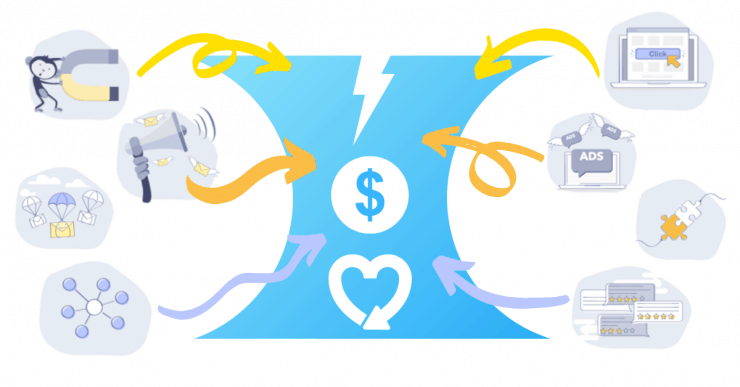
Chatbot Marketing Funnel Step 1: Find Potential Customers
At the top of the funnel, you have several options for an entry point into the conversation.
Albert’s diagram below categorizes entry points to your bot as paid and owned.
Paid entry points (aka ads):
Owned entry points:
- Website chat
- A link to Facebook Messenger
- QR codes you can scan
- Facebook Messenger checkbox plugin
- Your Facebook Page
- Facebook post autoresponders
Let’s take a closer look at each of the entry points and the tools in Customers.ai used to set them up.
Messenger Ads
Messenger ads are among the most robust forms of advertising available. It is a paid channel, but the options for targeting and customization are enormous.
Creating a Messenger Ad in Customers.ai is delightfully simple. In the app, go to Advertising, then Messenger Ads.
Customers.ai will walk you through each step of the process.
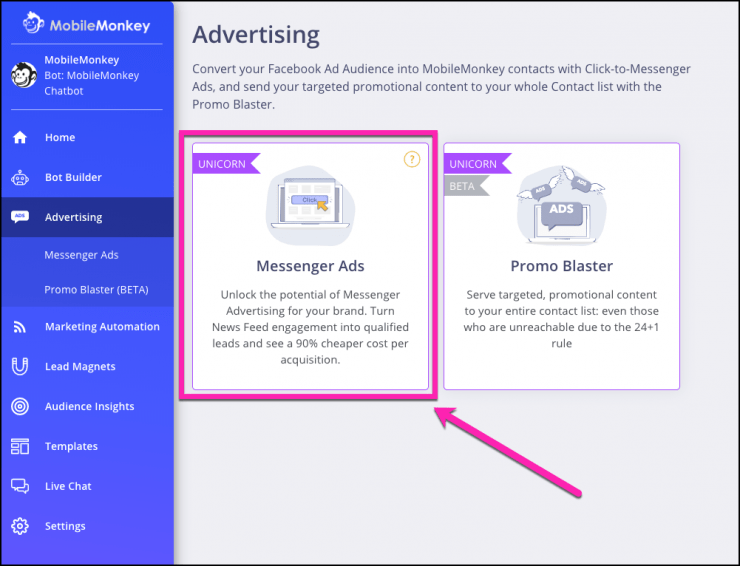
Website chat plugin
By adding your chatbot to your website with the chat plugin, you can enter website visitors into your Messenger funnel.
If you have a WordPress website, a simple way to do this is to install WP-Chatbot.
WP-Chatbot connects directly with Customers.ai. When a website visitor starts a conversation, they are added to your Messenger contact list and the chatbot-driven marketing funnel initiates.
Check it. The Customers.ai website has this chat widget in the lower right corner.
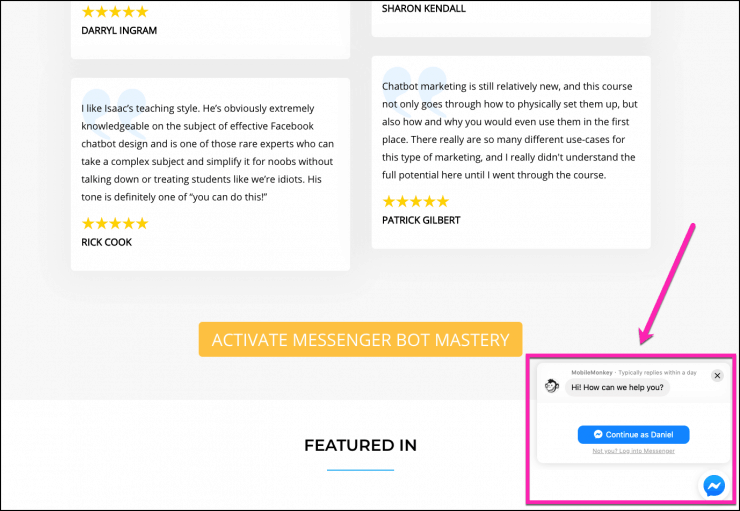
When the user clicks or taps “continue as [name],” it’s off to the races.
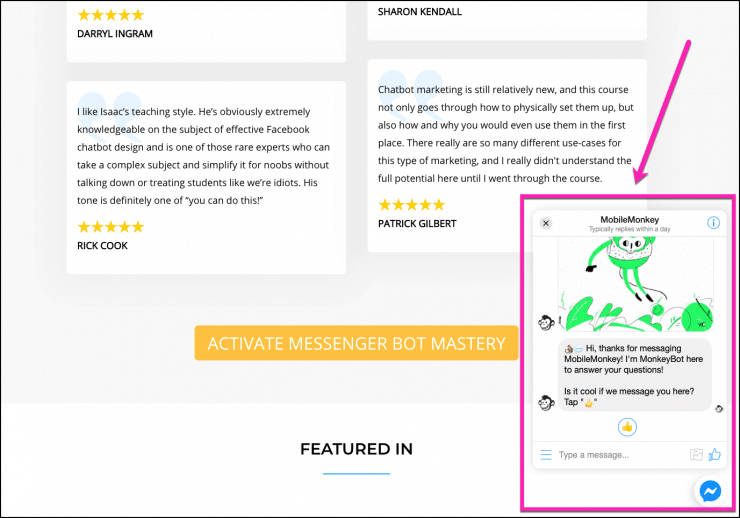
Boom. For the user, it’s a one-tap experience.
For you, as the marketer, it’s simple to set up:
- Install WP-Chatbot and connect it to your Customers.ai account.
- Create a dialogue in the Customers.ai chatbot builder that begins a conversation with the user.
To illustrate, here’s the Customers.ai chatbot builder where we created the sequence above.
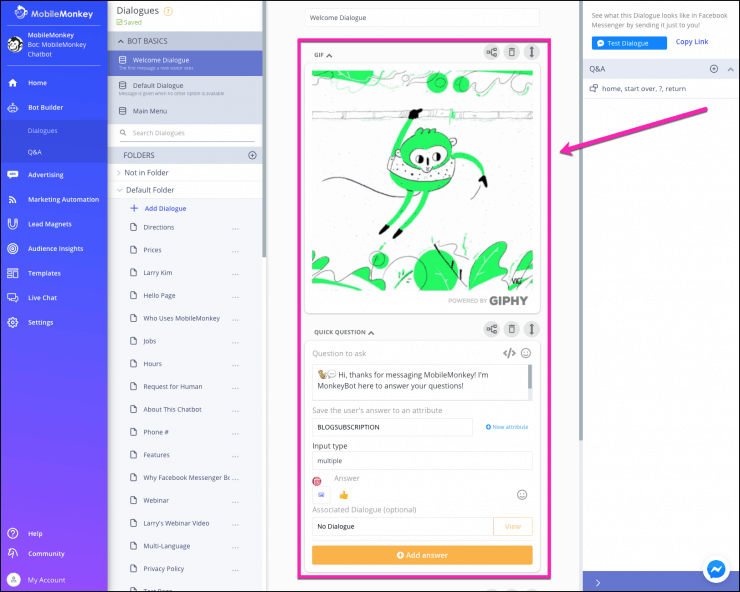
Facebook Messenger Links
Every Facebook Messenger chatbot has its own unique link.
You can copy and paste these links anywhere you want — emails, newsletters, email signatures, websites, social media, etc.
When someone clicks the link, they initiate the chat and the marketing funnel begins.
You can copy the Messenger link for any dialogue you make in Customers.ai.
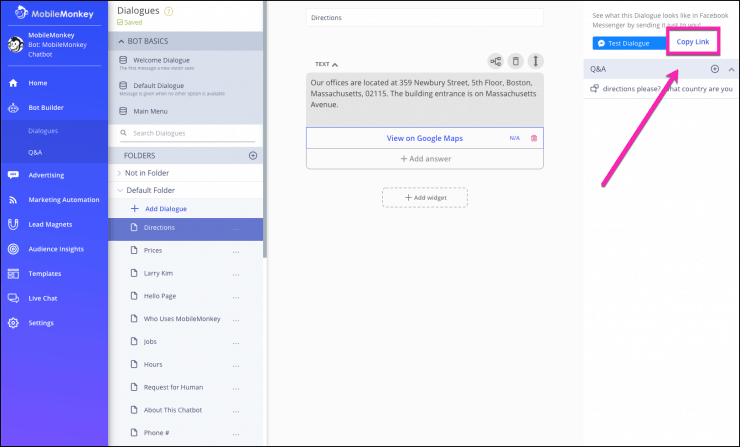
QR codes
Scannable codes are a good option for brick-and-mortar locations or other physical objects — receipts, flyers, posters, walls, etc.
Although Messenger scan codes are defunct, you can still create a QR code and link it to a Messenger sequence.
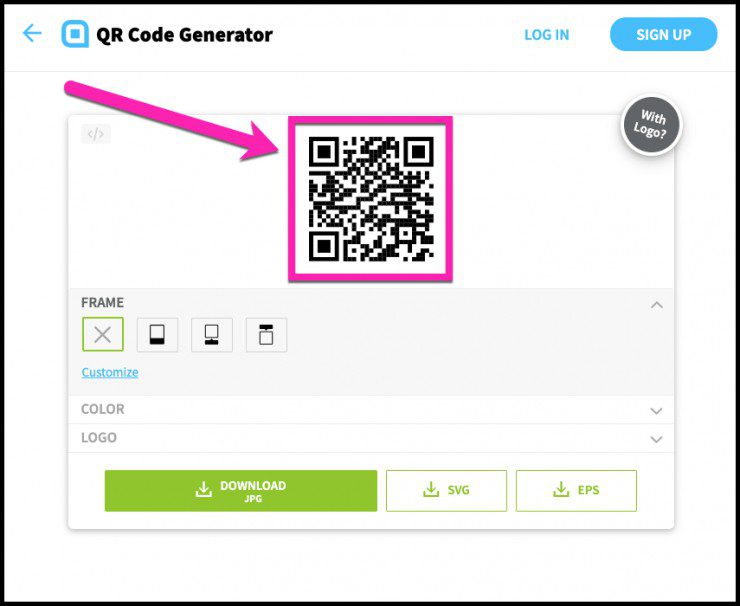
(Go ahead, scan that. You know you want to.)
We show you exactly how to create the QR code and link it to a chat sequence in this article.
Facebook Messenger Checkbox Plugin
The checkbox plugin is an ingenious way of driving more contacts with a simple checkbox.
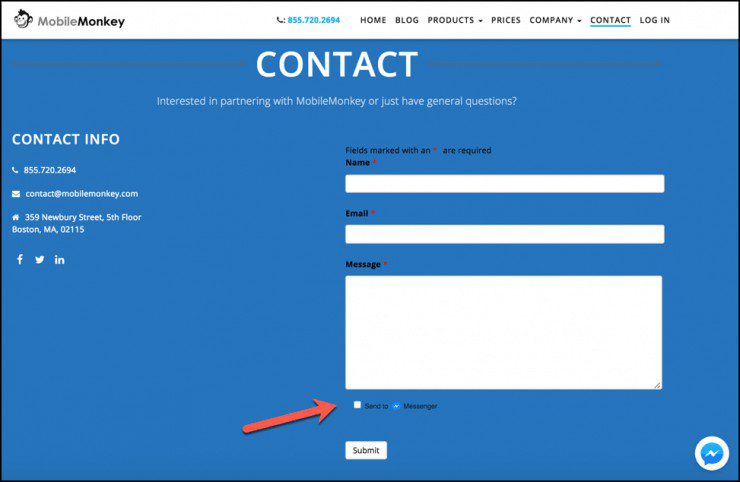
In Customers.ai, you can create these by going to Lead Magnets → HTML Elements → Add HTML Element.
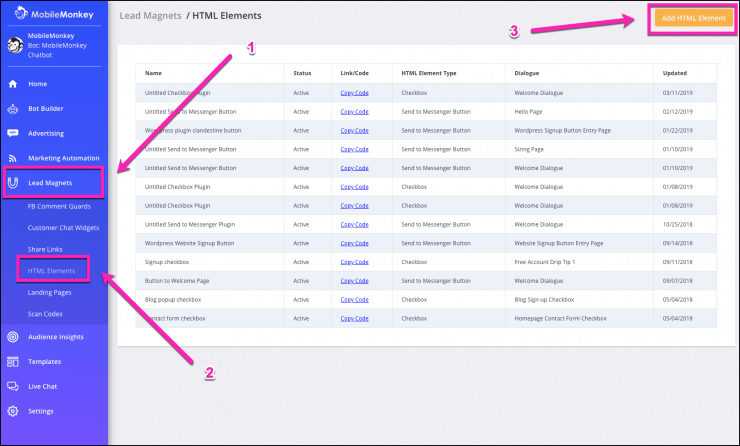
Facebook Page
Don’t overlook the potential of your own Facebook page. Many of your top-of-funnel customers will see you on Facebook and initiate a conversation.
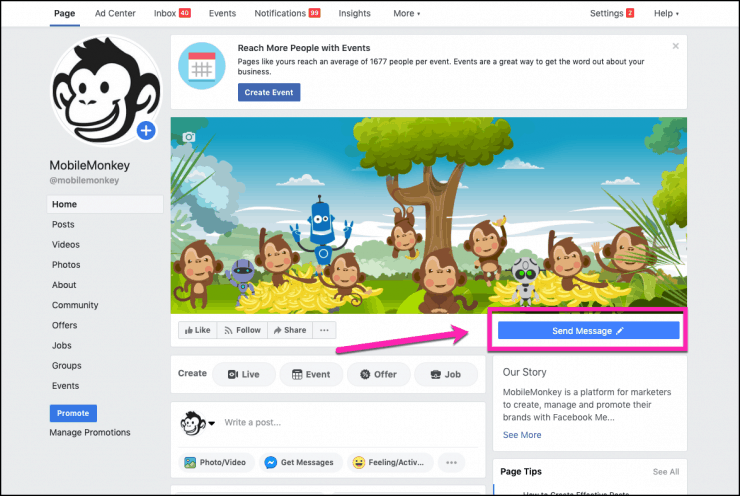
Facebook Post Auto-Responder
The auto-responder, called a Comment Guard, in Customers.ai is an easy way to get Messenger subscribers from organic Facebook posts.
The way it works is this. When someone comments on an organic post, they are automatically invited to become a Messenger subscriber.
Two-step process:
- User comments on a Facebook post
- User gets a Messenger conversation invitation
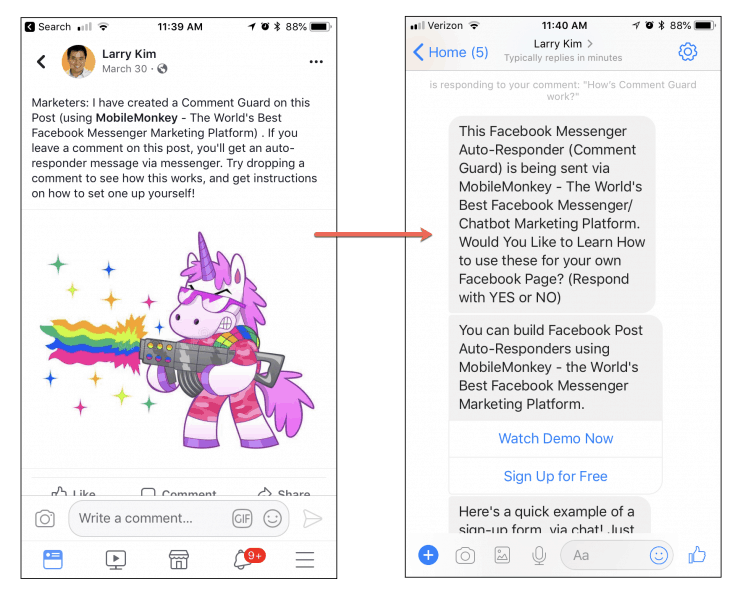
You can create these using the FB Comment Guard feature in Customers.ai.
What follows is the process of engaging your new contact in conversation.
Join Today’s Webinar with Larry Kim!
Or Register for the Free Replay
Learn all about NEW 100% Meta-Approved Automation Tools from Customers.ai with a spotlight on features to 10X Instagram & Facebook Engagement and turn social media into a revenue driver for your business.

Chatbot Marketing Funnel Step 2: Have a Conversation and Remarket
One-to-one conversations are the heart and soul of Facebook Messenger marketing.
It’s the conversational, back-and-forth nature that makes Messenger marketing such a potent and compelling channel.
And here’s one of the best parts — it’s easy to create these dialogues in Customers.ai.
And it’s easier to send them to your prospects for remarketing and consideration using the chat blaster, Promo Blaster and Facebook Messenger drip campaigns.
Let’s start with a closer look at your tools for creating dialogues, then we’ll zoom in on sending those dialogues out to contacts to start conversations.
Creating Dialogues
All dialogues are created in the Bot Builder → Dialogues.
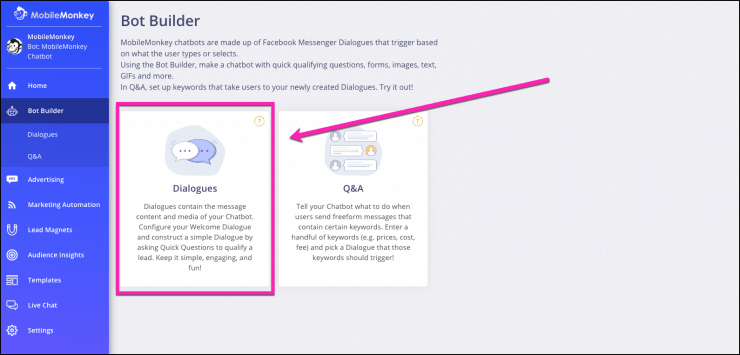
In each dialogue, you can add a wide variety of widgets using Customers.ai’s drag-and-drop functionality.
- Attachment
- Attribute
- Form
- Gif
- Gallery
- Image
- List
- Navigate
- Quick question
- Tag
- Text
- Typing
- Video
- Zap connection

To make the process of creating dialogues easier, we’ve developed a bunch of chatbot templates that are suitable for just about any industry.
Before you go to the work of creating a full-blown dialogue, check the templates library to see if any of our templates will work for your needs.
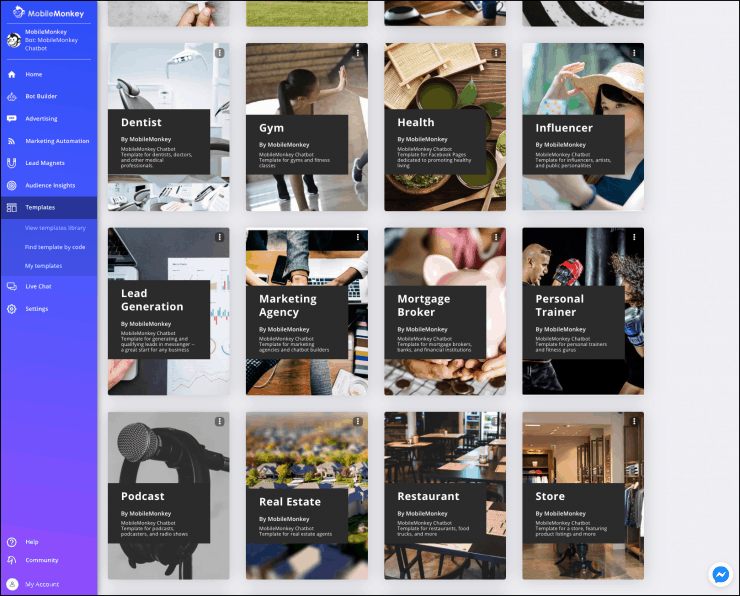
The funnel is designed to lead to a conversion. But obviously, not every interaction goes straight from conversation to conversion.
That’s why remarketing is such a crucial part of the funnel, and why it’s baked into the second step of the funnel.
So let’s take a look at the tools to initiate conversations to our Messenger contacts to continue the consideration part of the Messenger funnel.
Albert’s dialogue categorizes messages as organic messages and sponsored messages.
Sending Organic Messages with Chat Blasts & Drip Campaigns
As you pursue conversions, it’s important to keep in mind Facebook’s 24+1 policy.
What is the 24+1 rule?
After you get a new Messenger subscriber, you can send them an unlimited quantity of promotional messages for free for the first 24 hours.
Obviously, you want to be reasonable here with the number of messages you send. If you annoy your users and they report you, Facebook will ban you. It happens.
The tools at your disposal for sending free messages are the Chat Blaster and Drip Campaigns.
To use the chat blaster, to send messages to any audience within 24 hours of contact, review the guide: How to Chat Blast Your Facebook Messenger Contacts.
We also recommend sending new contacts a short drip campaign within the first 24 hours of becoming a new Messenger contact.
A drip campaign helps introduce contacts to your brand, what to expect from being in touch with you on Messenger and educates and nurtures your lead or customers.
For more on the nuts and bolts of Facebook Messenger drip campaigns, here’s your guide.
Sending Sponsored Messages
After the 24 hour period is over, you can only send one more free message at a time of your choosing and as many paid promotional messages as you want.
Using Customers.ai’s promo blaster, you can serve targeted, promotional content to your entire contact list, even all the people who have gone through the 24+1 phase.
The great thing about the promo blaster is that you can automatically send a message to thousands of users at a time. The cost per impression at this point is very low.
To create a sponsored message in Customers.ai, go to Advertising → Promo Blaster.
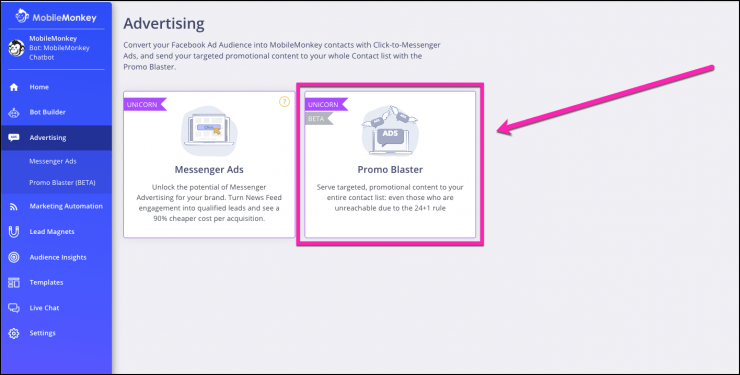
Since you’ll most likely be remarketing many of your messenger subscribers, it’s a good idea to create attributes — an identifying feature that helps you to sort your audiences.
So, let’s say you are a B2B agency trying to attract more leads. One of the qualifying questions in your Messenger dialogue is Does your business serve a local community, nationwide or international?

Later on, you might want to retarget those local, national, or international businesses with super-specific content based on their answer to that question.
You can add new attributes on the fly as you create your dialogue. Later, you can add these attributes to new dialogues and campaigns for highly targeted marketing efforts.
Chatbot Marketing Funnel Step 3: Get the Conversion
The ultimate endpoint of a conversation is a conversion — the point at which the customer makes an appointment, buys a product, schedules a session, or attends the webinar.
Ideally, your customers will convert during this phase of the funnel.
Using powerful tools like drip campaigns and segmentation, you have a far higher likelihood of converting users through a Messenger campaign than with, say, email or even Facebook ads.
The power of Messenger marketing is inherent in the nature of the channel — one-on-one conversational marketing. This stuff works!
The brain is hardwired for conversation. Whether that conversation happens face-to-face or with a Messenger chatbot doesn’t change the fact that conversational interaction is in play. Humans respond to that.
You’ll score those conversions! But if not, you can keep remarketing until you do.
Chatbot Marketing Funnel Step 4: Customer Care/Notifications
Once you have subscribers, treat ‘em right.
To send messages to your contact list on the regular, you should submit your page for subscription messaging.
With Facebook Subscription Messaging, you request the ability to send non-promotional content to your subscribers on a regular basis. Facebook approves these requests manually.
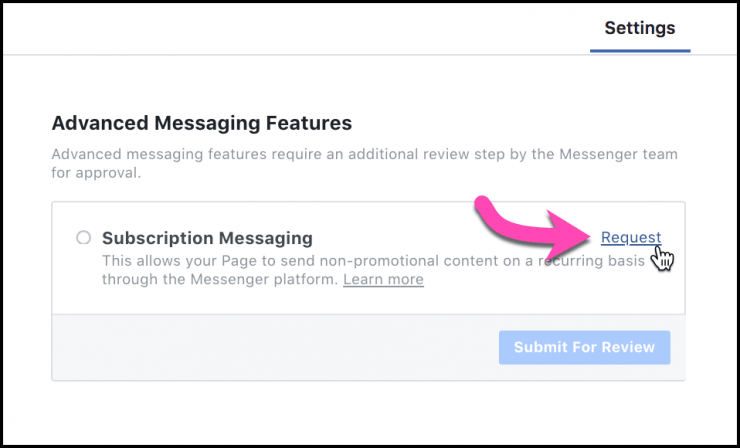
Get the inside scoop on how to request and get approved for subscription messaging.
Once you’re approved, you can send updates to your subscribers, as long as those updates are 100% non-promotional in nature. For example, don’t send coupons, sales alerts, or new deals.
Instead, you can send messages to your subscribers with news, updates about things like shipping information or delivery dates, or certain types of data in categories like fitness or finance.
Chatbot Marketing Funnel Step 5: Remarketing again
The final step in the funnel is, yep, remarketing again.
Remarketing in this phase looks similar to the remarketing that you used during phase 2 except you are probably using Facebook Ads to reach customers who fall outside of the 24+1 window.
You have these Facebook tools at your disposal:
- Facebook ads – Use Customers.ai’s Facebook Ads audience sync to create a custom audience based on any audience you segment in Customers.ai.
- Facebook Messenger ads – Set up a click-to-Messenger ad using the same audience sync tool mentioned above.
- Sponsored Messages – Sponsored messages are sent via the Customers.ai Promo Blaster to send a promotional message outside of the 24+1 window to an audience of your existing contacts.
Your remarketing pitch can include things like blog content, coupons, deals, discounts, giveaways, contests, quizzes, downloads, etc.
If you were diligent about creating attributes and segmenting your audience when you set up your dialogues, remarketing will be a cinch.
You can check out Customers.ai’s Audiences dashboard to look at all the audiences you’ve created. Then, you can design a remarketing campaign designed to reach a specific audience that may be close to converting.
If you haven’t, no worries. There are plenty of opportunities to learn, re-test, reconfigure, tweak, optimize and experiment.
Two things will be helpful as you work to improve your Facebook Messenger funnel — Page Insights and Customers.ai bot analytics.
From your Facebook page, click “Insights” and then Messages. From this page, you can take a look at some of the important data trends on your Messenger activity — new connections, block rate, etc.
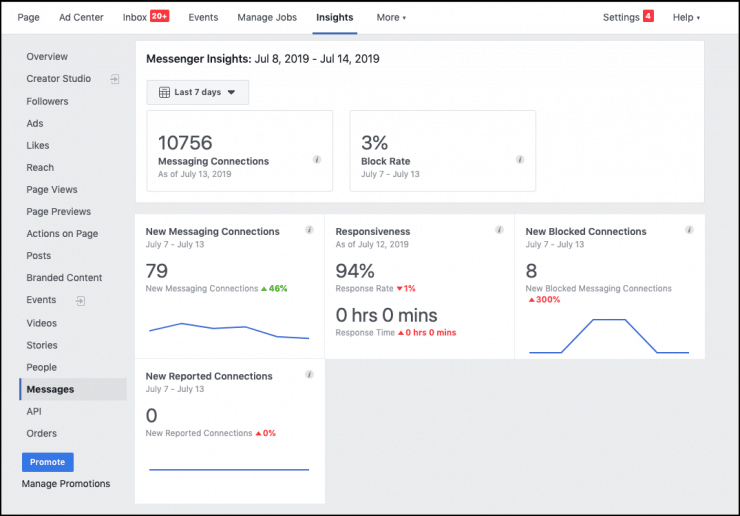
Another great source of information is Audience Insights in Customers.ai, which you can access by going to Home → Audience Insights.
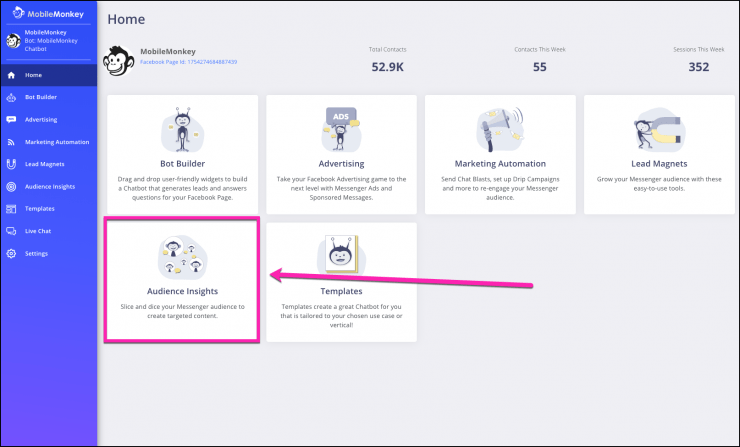
Audience Insights provides data on your contacts, custom audience segmentation, forms statistics, and advanced bot analytics.
Using the Bot Analytics, for example, you can get valuable insights into the growth of your contacts, open rates, sessions, conversions, and more.
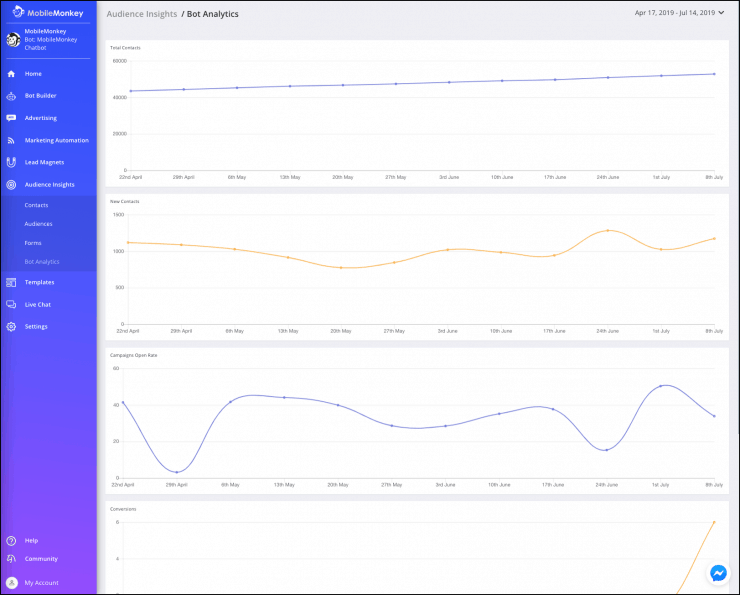
Use This Facebook Messenger Funnel for Massive Marketing Success
How do you create an effective Facebook Messenger marketing funnel?
Here’s the five-step Messenger funnel:
- Prospecting – Establishing a conversational connection at the top of the funnel
- Consideration/remarketing – Tapping into that engaged audience with conversation
- Conversion – Yay! We have a sale!
- Customer care/notifications – Nurturing your customers post-sale
- Remarketing – Bringing things back to their attention for more and deeper engagement

We’ve given you the framework. We know that this works.
There’s no need to reinvent the wheel by trying to devise some new marketing funnel. This Messenger funnel is built on traditional marketing principles that are proven to work.
The fun part? It’s all you — creating dialogues, targeting your audience, retargeting that audience, and watching the conversions roll on in.
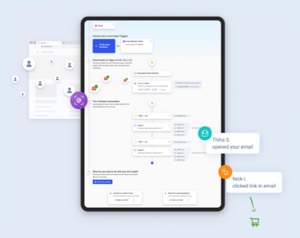
See Who Is On Your Site Right Now!
Turn anonymous visitors into genuine contacts.
Try it Free, No Credit Card Required
Facebook Messenger Funnel: Next Steps
Summary of your next steps:
- If you haven’t done it yet, sign up for Customers.ai now. Everything will make perfect sense once you’re up and running in the chatbot builder.
- Join up with tens of thousands of Facebook Messenger marketers in our exclusive Facebook group to get cutting-edge intel and marketing help where you need it.
- Watch the summit video of Albert Rios which inspired this article below.
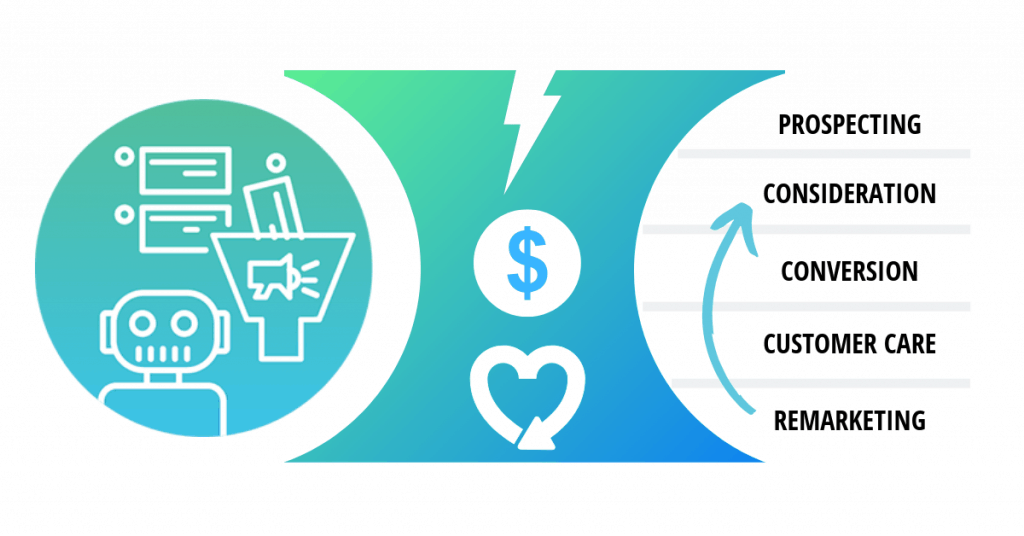
where is the video?
as always, just issues with you.
I see the video directly above your comment. Is it missing for you?